As has been previously reported here, kimchi, the super-spicy fermented cabbage dish from Korea, appears to be one of the world’s healthiest dishes. Now, media sources in China are reporting that this fiery condiment is also beneficial for those seeking to lose a few pounds.
Posted by John Stuart Translations (Page 4)
It’s a question that’s plagued people for generations: How do I get a three-ton load of bamboo off the back of my truck with minimal effort? Well, the Taiwanese truck driver in the following video has developed a rather efficient method for dropping off his deliveries.
Read More
In an effort to develop individuals who will be active in global society, the Liberal Democratic Party of Japan’s Headquarters for the Revitalization of Education has compiled a draft proposal which includes making it a prerequisite to score above a certain number of points in the Test of English as a Foreign Language (TOEFL) exam before being allowed to enter university.
The proposal states, “The development of human resources is essential for achieving the Abe Cabinet’s most important issue, economic revitalization. Moving away from egalitarianism, strategic human resource development aimed at strengthening top achievers will be undertaken.”
Read More
On March 14, Hiroshima City announced tentative plans to remove molded plastic mannequins depicting the horrors of the atomic bombing from its Peace Memorial Museum by 2016. The proposed removal is in line with a review suggesting displays within the facility be switched to include more that depict actual articles belonging to the deceased and other real items from the period. Opinions from visitors to the museum are split on whether or not the mannequins should be removed.
The three mannequins in question are of an adult woman, a college-aged woman, and a small boy shown wondering through the blast aftermath in a severely burned state. Originally made from wax, the mannequins have been on display at the museum since 1973, and in their current form since 1991.
Read More
Quite common in Western countries, the concept of shared accommodation in Japan is still relatively new. However, according to Oak House, a guest house and apartment operator in Tokyo, such accommodation is gaining in popularity. Fifteen years ago, the company managed about 150 units; today that figure has risen to 2,300. Shunned by some as being inconvenient and a hassle, others are being drawn to added-value properties featuring amenities such as yoga studios and home theater facilities. Oak House said there is a waiting list of 100 people at its most popular location.
Shared accommodation also has the benefit of being cost effective as no key money (a mandatory, nonrefundable payment, typically equivalent to two months’ rent, given to the landlord for the privilege of being able to live in the unit) or security deposit (typically two months’ rent, and though technically refundable, is seldom returned in full as apartment cleaning fees and other expenses are deducted) are required. Additionally, furnishings are provided, something else that is not common in Japan, meaning initial outlays can be kept to a minimum.
With the popularity of this type of housing increasing, companies in Japan are concocting various inducements in an effort to draw in renters.
Risk Monster, a credit management outsourcing service that calculates bankruptcy risk, recently announced the results of its first survey asking, “Which Japanese Companies Do You Expect to Still Exist in 50 Years.” The survey was conducted over the Internet on Feb. 25 and 26, and received 1,000 valid responses from influential individuals between the ages of 20 and 69.
Coming in third was Honda, second place went to the East Japan Railway Company, and grabbing the top spot was…
Read More
For those whose work has them chained to a desk, concerns about whether or not they are getting enough exercise often creep into their minds.
In Japan, it is estimated that an average adult male should burn about 2,000 calories a day while an adult female should use around 1,700 (numbers vary according to age and build). Even armed with that knowledge, many people still consume more calories than they burn by indulging in snacks between meals and eating excessively late into the night. A lot of desk jockeys are probably wondering what they should do to better their situation.
Well, there might be some good news. The number of calories burnt at the click of a mouse has recently been calculated.
Read More
So you think you have a refined sense of smell, do you? Well, forget that job as an aromachologist, ah, yes, the position actually does exist, there may soon be openings in Shanghai that will allow you to put your nose to work for the greater public good.
Read More
Founded in 1872, Shiseido, one of the world’s oldest cosmetics companies and the fourth largest, announced on Feb. 28 that from April onward it would put an end to all testing on animals in the development of raw materials for its cosmetic and quasi-pharmaceutical products.
The Okinawa Convention and Visitors Bureau (OCVB) along with the prefectural government have cancelled their plans to use space on women’s bare thighs for marketing the islands as a graduation trip destination to students outside the prefecture. Citing criticism, the two bodies stated January 24, “Placing temporary tattoo-like stickers on the thighs of young women to advertise Okinawa is not in line with prefecture’s brand image.”
Read More
An Internet survey asking Japanese men and women aged 20 to 39 which company they would like a potential marriage partner to work for ranked Nintendo number one.
The survey, conducted November 28 and 29, 2012, received 500 valid responses. Filling out the top five were All Nippon Airways (ANA), Tanita (electronic scales), Google and Apple. Reasons given for choices were wide-ranging including, “It’s a hot company,” and “My partner is unlikely to gain a middle-aged bulge (working there).”
Read More
In a review of the current five-day school week currently being used in public schools across Japan, the Ministry of Education, Culture, Sports, Science and Technology said it is considering Saturday classes and a re-introduction of the six-day school week that was phased out between 1992 and 2002.
New curriculum guidelines mandating increased classroom hours resulting from a re-examination of the Ministry’s Yutori Kyoiku, (pressure-free education) program were introduced to elementary schools last year, and fully implemented in junior high schools this year. In seeking the use of Saturdays, the Ministry hopes to improve the academic ability of the nation’s youth by securing more teaching hours. It also hopes to dispel concerns of a widening “education gap” between public schools and private schools, many of which continue to implement Saturday classes.
Read More
Paying Just $11 a Day, Subcontractors Ripping Off Fukushima Nuclear Accident Decontamination Workers
The Tokyo Shimbun has discovered that workers involved with national government controlled cleanup projects resulting from the accident at the Fukushima Daiichi Nuclear Power Plant are being ripped off by subcontractors.
Despite being able to rent lodging facilities from the government and others for free or for very little money, contractors forcibly deduct inflated accommodation and meal charges from workers’ pay. When the 10,000 yen (US$111) a day “danger pay” provided to contractors by the government (read: taxpayers) is taken into consideration, it means the contractors themselves end up forking out a measly 1,000 yen (US$11) a day per worker.
Read More
Living in an earthquake-prone country like Japan means constant vigilance in terms of disaster preparedness. Though the Great East Japan Earthquake of 11 March 2011 struck during daylight hours, there’s no guarantee that a disaster of similar magnitude won’t strike at night. Most people keep a flashlight or two at home, however, if power is cut as a result of an earthquake, as groping your way around in the dark while in a panicked state might not be as easy as you think.
Thankfully, Tokyo’s Force Media group has come up with an ingenius solution to this problem. And it’s much more than just a regular-old flashlight…
Read More
Son, have you been drinking tonight?
Yes officer, I must say I’ve enjoyed a few libations this evening.
Well, I think you’d better step out of the car; we’ve got some pretty strict laws against that kind of stuff in this state.
But I wasn’t driving officer!
Isn’t anyone else in the car, son. Seems you’ve had more than just ‘a few’.
Honestly, Officer! Mr. Toyota has been at the controls the whole time…
Toyota Motor Corporation announced it would be unveiling a self-driving car at the Consumer Electronics Show (CES) being held in Las Vegas January 8 to 11, 2013. The car, a Lexus LS600, is outfitted with radars, cameras and an array of sensors that allow it to be cognizant of its immediate environment.
Read More
In an interview with well-informed sources on December 28, Japanese newspaper Sankei Shimbun discovered Chinese diplomatic papers created in 1950 used the Japanese name Senkaku to identify the Japanese-controlled islands in the East China Sea. The same document also contained language recognizing the Senkakus as a part of Okinawa.
Currently China claims the islands are its territory as “a part of Taiwan.” Recognition by China in 1950 that the islands are a part of Okinawa is contradictory to its current claim and weakens the foundation of its present position.
Read More
With Tibetans continuing to set themselves ablaze in protest of oppressive rule by Chinese authorities, state media for Qinghai province reported that the government of the province’s Huangnan Tibetan Autonomous Prefecture announced it would begin offering rewards of 200,000 yuan (about US$32,000) by December 27 to anyone at the scene who can prevent such suicides from occurring.
Read More
The Japanese love their insurance. According to the weekly tabloid Shukan Post, the average household in Japan pays 454,300 yen (approx. US$5,393) a year in life insurance premiums in an effort to feel safe and protect loved ones. Comprising just 2% of the global population, Japan pays 18% of the world’s total insurance premiums, this which works out to average insurance spending of US$3,500 per capita, the highest level in the world.
Read More
Saying customers were complaining about its cups being too full, Starbucks Japan started reducing the amount of java in each pour of drip coffee this month. According to the company, feedback pointed out their full-to-the-brim cups left no room for adding milk and were too easy to spill. Some customers, however, are voicing displeasure about the unannounced reduction to their caffeine fix.
Read More

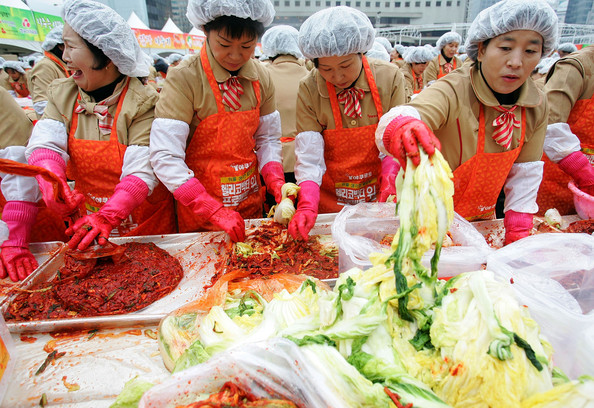










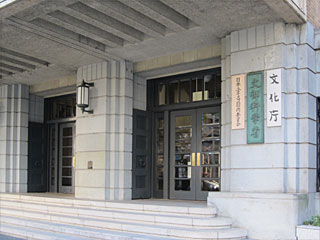
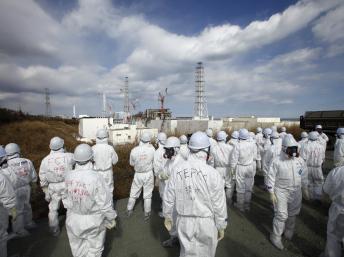
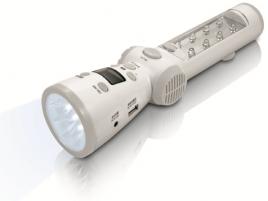
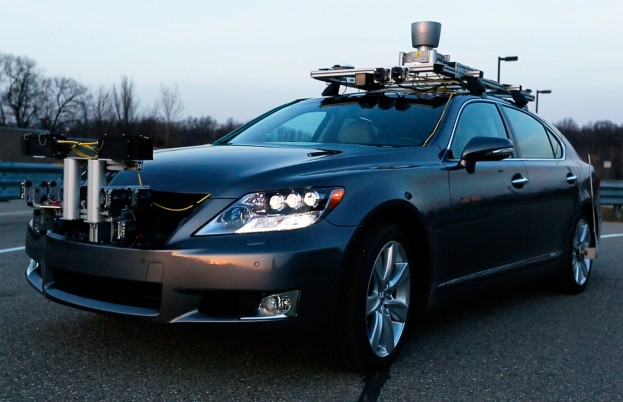
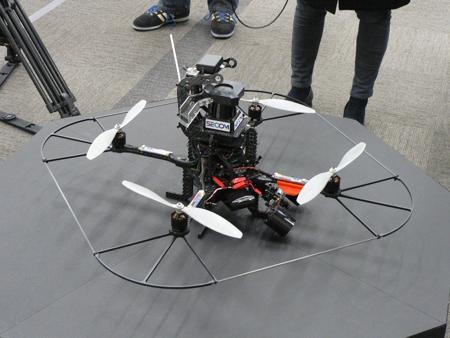
 McDonald’s new Happy Meals offer up cute and practical Sanrio lifestyle goods
McDonald’s new Happy Meals offer up cute and practical Sanrio lifestyle goods All-you-can-drink Starbucks and amazing views part of Tokyo’s new 170 meter-high sky lounge
All-you-can-drink Starbucks and amazing views part of Tokyo’s new 170 meter-high sky lounge More foreign tourists than ever before in history visited Japan last month
More foreign tourists than ever before in history visited Japan last month Studio Ghibli glasses cases let anime characters keep an eye on your spectacles
Studio Ghibli glasses cases let anime characters keep an eye on your spectacles McDonald’s Japan releases a pancake pie for new retro kissaten coffeeshop series
McDonald’s Japan releases a pancake pie for new retro kissaten coffeeshop series Beautiful Sailor Moon manhole cover coasters being given out for free by Tokyo tourist center
Beautiful Sailor Moon manhole cover coasters being given out for free by Tokyo tourist center Super Nintendo World expansion gets delayed for several months at Universal Studios Japan
Super Nintendo World expansion gets delayed for several months at Universal Studios Japan Studio Ghibli releases new action figures featuring Nausicaä of the Valley of the Wind characters
Studio Ghibli releases new action figures featuring Nausicaä of the Valley of the Wind characters Starbucks reopens at Shibuya Scramble Crossing with new look and design concept
Starbucks reopens at Shibuya Scramble Crossing with new look and design concept Mister Donut ready to make hojicha dreams come true in latest collab with Kyoto tea merchant
Mister Donut ready to make hojicha dreams come true in latest collab with Kyoto tea merchant Disney princesses get official manga makeovers for Manga Princess Cafe opening in Tokyo
Disney princesses get official manga makeovers for Manga Princess Cafe opening in Tokyo Beautiful new Final Fantasy T-shirt collection on the way from Uniqlo【Photos】
Beautiful new Final Fantasy T-shirt collection on the way from Uniqlo【Photos】 Is the new Shinkansen Train Desk ticket worth it?
Is the new Shinkansen Train Desk ticket worth it? Foreign English teachers in Japan pick their favorite Japanese-language phrases【Survey】
Foreign English teachers in Japan pick their favorite Japanese-language phrases【Survey】 Japanese convenience store packs a whole bento into an onigiri rice ball
Japanese convenience store packs a whole bento into an onigiri rice ball We try out “Chan Ramen”, an underground type of ramen popular in the ramen community
We try out “Chan Ramen”, an underground type of ramen popular in the ramen community Studio Ghibli releases Kiki’s Delivery Service chocolate cake pouches in Japan
Studio Ghibli releases Kiki’s Delivery Service chocolate cake pouches in Japan Japan’s bone-breaking and record-breaking roller coaster is permanently shutting down
Japan’s bone-breaking and record-breaking roller coaster is permanently shutting down New definition of “Japanese whiskey” goes into effect to prevent fakes from fooling overseas buyers
New definition of “Japanese whiskey” goes into effect to prevent fakes from fooling overseas buyers Our Japanese reporter visits Costco in the U.S., finds super American and very Japanese things
Our Japanese reporter visits Costco in the U.S., finds super American and very Japanese things Studio Ghibli unveils Mother’s Day gift set that captures the love in My Neighbour Totoro
Studio Ghibli unveils Mother’s Day gift set that captures the love in My Neighbour Totoro Foreign passenger shoves conductor on one of the last full runs for Japan’s Thunderbird train
Foreign passenger shoves conductor on one of the last full runs for Japan’s Thunderbird train Domino’s Japan now sells…pizza ears?
Domino’s Japan now sells…pizza ears? New Japanese KitKat flavour stars Sanrio characters, including Hello Kitty
New Japanese KitKat flavour stars Sanrio characters, including Hello Kitty Kyoto creates new for-tourist buses to address overtourism with higher prices, faster rides
Kyoto creates new for-tourist buses to address overtourism with higher prices, faster rides Sales of Japan’s most convenient train ticket/shopping payment cards suspended indefinitely
Sales of Japan’s most convenient train ticket/shopping payment cards suspended indefinitely Sold-out Studio Ghibli desktop humidifiers are back so Totoro can help you through the dry season
Sold-out Studio Ghibli desktop humidifiers are back so Totoro can help you through the dry season Japanese government to make first change to romanization spelling rules since the 1950s
Japanese government to make first change to romanization spelling rules since the 1950s Ghibli founders Toshio Suzuki and Hayao Miyazaki contribute to Japanese whisky Totoro label design
Ghibli founders Toshio Suzuki and Hayao Miyazaki contribute to Japanese whisky Totoro label design Doraemon found buried at sea as scene from 1993 anime becomes real life【Photos】
Doraemon found buried at sea as scene from 1993 anime becomes real life【Photos】 Tokyo’s most famous Starbucks is closed
Tokyo’s most famous Starbucks is closed One Piece characters’ nationalities revealed, but fans have mixed opinions
One Piece characters’ nationalities revealed, but fans have mixed opinions We asked a Uniqlo employee what four things we should buy and their suggestions didn’t disappoint
We asked a Uniqlo employee what four things we should buy and their suggestions didn’t disappoint Princesses, fruits, and blacksmiths: Study reveals the 30 most unusual family names in Japan
Princesses, fruits, and blacksmiths: Study reveals the 30 most unusual family names in Japan Beautiful Sailor Moon manhole cover coasters being given out for free by Tokyo tourist center
Beautiful Sailor Moon manhole cover coasters being given out for free by Tokyo tourist center Super Nintendo World expansion gets delayed for several months at Universal Studios Japan
Super Nintendo World expansion gets delayed for several months at Universal Studios Japan Studio Ghibli releases new action figures featuring Nausicaä of the Valley of the Wind characters
Studio Ghibli releases new action figures featuring Nausicaä of the Valley of the Wind characters Starbucks reopens at Shibuya Scramble Crossing with new look and design concept
Starbucks reopens at Shibuya Scramble Crossing with new look and design concept Mister Donut ready to make hojicha dreams come true in latest collab with Kyoto tea merchant
Mister Donut ready to make hojicha dreams come true in latest collab with Kyoto tea merchant Hamster abandoned at Tokyo ramen restaurant gets new home
Hamster abandoned at Tokyo ramen restaurant gets new home Japanese mom’s hand-made Slime masks draw near, boost kid’s cuteness and protection stats【Photos】
Japanese mom’s hand-made Slime masks draw near, boost kid’s cuteness and protection stats【Photos】 The oldest tunnel in Japan is believed to be haunted, and strange things happen when we go there
The oldest tunnel in Japan is believed to be haunted, and strange things happen when we go there Melon topped with ice cream: two great Hokkaido tastes in one crazily delicious package
Melon topped with ice cream: two great Hokkaido tastes in one crazily delicious package Manga artist raises question online about false perspective in Ghibli film My Neighbor Totoro
Manga artist raises question online about false perspective in Ghibli film My Neighbor Totoro Cloth randoseru Japanese backpacks are here to lighten load on parents’ wallets and kids’ backs
Cloth randoseru Japanese backpacks are here to lighten load on parents’ wallets and kids’ backs McDonald’s Japan goes old-school with new Showa-era Kissa Mac sweets lineup【Photos】
McDonald’s Japan goes old-school with new Showa-era Kissa Mac sweets lineup【Photos】